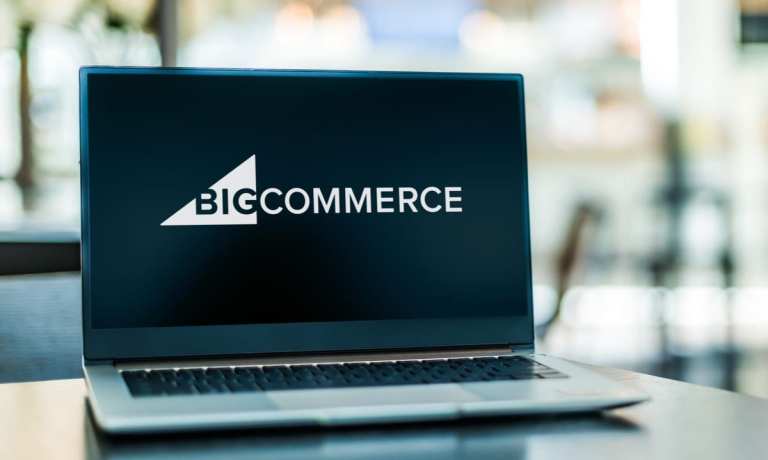Today in Retail: Hyper Activism Could Reshape the Retail Landscape; BigCommerce Unveils Multi-Store Management Tool

Today in retail, retailers face hyper activism, while BigCommerce launches Multi-Storefront. Plus, buy now, pay later (BNPL) options aren’t taking away from private-label credit cards, Ted Baker turns down a pair of takeover offers from Sycamore Partners, and PayPal’s reverse logistics brings some happiness to the returns process.
Retailers Face Spate of Hyper Activism Amid Post-COVID, Pre-Inflation Transition
Retailers and brands are transitioning from a digital shift and two years of pandemic-era transformation, while also re-tooling their business propositions to fit consumers’ current concerns about inflation. A third trend is emerging that also threatens the status quo: activist investors. The ongoing spate of external demands being put forth by large institutional investors onto the retail sector is something more akin to hyper activism. In the past week alone, there have been at least six different buyout, breakup and board shakeup plans in the retail trade press.
BigCommerce Debuts Multi-Storefront to Help Merchants Manage Multiple Brands in One Store
eCommerce platform BigCommerce has debuted Multi-Storefront, a new feature that helps enterprise merchants create and manage multiple storefronts within one BigCommerce store. Multi-Storefront merchants can manage their entire businesses from one dashboard. All Multi-Storefront shops can be powered by BigCommerce’s native stencil theme framework or by a third-party headless front end. Brands can also mix and match headless and native stencil storefronts in a single account.
New Data Shows BNPL Doesn’t Cannibalize Private-Label Credit Cards at Checkout
While 52 million United States consumers used buy now, pay later (BNPL) options to make purchases in December, BNPL’s meteoric rise into the limelight has given some retailers pause. They are facing mounting pressure to provide customers with BNPL options, but they are also concerned that providing BNPL options could cut into their store card sales. In “The Truth About BNPL And Store Cards,” a PYMNTS and PayPal collaboration, PYMNTS surveyed 2,161 U.S. consumers about their propensity to use BNPL, store cards and other payment methods at the retail point of sale (POS) to get the inside scoop on why BNPL is not store cards’ competition, but rather their natural complement.
Ted Baker Declines Sycamore’s Takeover Offers
British fashion retailer Ted Baker has turned down a pair of takeover offers from private equity investor Sycamore Partners Management, saying the proposals greatly undervalue the company. The retailer said Sycamore’s offers did not “compensate shareholders for the significant upside that can be delivered by Ted Baker as a listed company.”
PayPal’s Reverse Logistics Unit Brings ‘Happy’ to the Dreary Returns Biz
In January, the National Retail Federation said that merchants expect more than $761 billion in merchandise sold last year to be returned by consumers — that’s nearly 17% of U.S. retail sales, pegged at $4.5 trillion in 2021. That’s bad news for merchants on many levels, said David Sobie, vice president of Happy Returns at PayPal. PayPal has that it’s offering merchants that are part of the PayPal network use of its Happy Returns service and exchange portal at no additional cost.
Apple Slashing iPhone SE, AirPods, iPhone 13 Production
Apple will make about 20% fewer iPhone SEs next quarter than the tech giant had originally planned, a sign that consumer electronics demand has been lowered as the Russia-Ukraine war continues. The company will also cut back on AirPods earphones production by 10 million units for 2022. The company has also asked its suppliers to slow down iPhone 13 production by a couple of million units across the entire range, based on seasonal demand.
Walmart Ends Some Cigarette Sales
Walmart will stop selling cigarettes in some U.S. stores — including some locations in Arkansas, California, Florida and New Mexico — after a years’ long debate among the company’s management about the issue. The company is replacing the tobacco products with more self-checkout registers, grab-and-go food options and candy.
In Bid to Be Heard, Angi Makes Oddly Satisfying Bet on Ryan Reynolds and ‘ASMR’
Sometimes the best way to be heard is to whisper. That’s the thinking behind a new big-budget ad campaign by home improvement platform Angi in the form of three, 30-second spots. Autonomous sensory meridian response, or ASMR, is a media production technique that relies on whispering and other highly mic’d sounds and tightly shot, mesmerizing images to deliver what Google Trends referred to as a sedative “brain massage.” In Angi’s case, with the help of Ryan Reynolds’ Maximum Effort creative agency, the home improvement platform turns steam cleaning, caulking and painting from mundane chores into some sort of hypnotic moment of household Zen under the tag line, “That oddly satisfying feeling when you don’t do it yourself.”
Livestreamed Personal Shopping Lets Influencers Walk Endless Aisles — Rather Than Customers
In the new era of livestreamed personal shoppers, social media influencers with great style are taking center stage in creating the curated digital shopping experiences consumers now expect. Inspired by the ubiquity of the new app-based streaming shopping she’s seen in Asia, ShopThing Founder and CEO Maggie Adhami-Boynton brought it to North America — and tailored it to a new audience. It’s estimated to do $430 billion this year, up from $18 billion in 2018. ShopThing’s smartphone-armed influencers made short videos in-app, curating items based on comments in their feeds and filling empty stores with virtual shoppers.
Low-Cost Self-Checkout System Aims to Disrupt Retail POS Market
The pandemic has completely changed consumers’ shopping and buying behavior, accelerating the adoption of digital technologies and a boom in eCommerce within the retail sector. As a result of this shift, brick-and-mortar retailers looking to create a winning post-pandemic business model have turned to self-service solutions like buy online, pick up in-store (BOPIS) and click-and-collect methods to keep physical contact to a minimum and entice consumers back into stores.